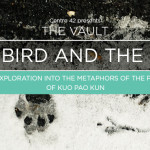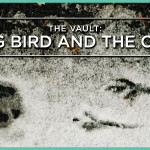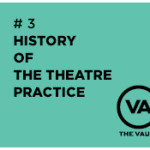These four plays by late theatre doyen Kuo Pao Kun form the primary text for Margaret Chan’s investigation into the metaphors of big bird and the cat. Click on each tab to find out about their first stagings and how the critics and public responded to them at the time. Also, The Repository links below will take you to images of the actual programmes used at the premieres.
-
Synopsis:
A man of foreign origin is frustrated by his treatment in Singapore, when he turns into a cat and later meets an eagle.
Premiere:
1990 (Chinese) by Practice Theatre Ensemble
Part of the opening programme of The Substation.
Date: 15 September 1990 Venue: Guinness Theatre, The Substation Director: Kuo Pao Kun Cast: Wang Wei (China) 1997 (English) by The Theatre Practice
Presented as Mother Daughter Eagle Cat alongside the English translation of Zhu Cai Zhen’s My Mother’s Chest. (More details in The Repository.)Date: 1-4 May 1997 Venue: Jubilee Hall, Raffles Hotel Director: Kuo Pao Kun Cast: T. Sasitharan (replacing Remesh Panicker who fell ill) Response:
“When the action reached moments to test the audience’s credulity, these went down smoothly as comedy rather than improbabilities.
On top of that, Sasitharan also conveyed his character’s emotional uncertainty about where he stood in the argument between idealism and pragmatism, which was the play’s essential theme.”Source: Sure-footed cat tale and brave use of long pauses by Susan Tsang, The Straits Times (3 May 1997), http://tinyurl.com/qf7jk3f“Kuo’s poetic voice emerges with an evocative simplicity as the protagonist recalls his childhood of squatting in caves of his poor village. He remembers fondly how he used to watch the eagle spread out its wings and glide towards the sun., how the sky offered freedom and space…
The final moment has the human well out of the way and two spotlights on the canvas background, revealing an eagle and a cat. The Chinese title literally translates into Eagle Cat Can and writer, director and actor have shown that these two animals can evoke a wealth of responses from the sensitive listener and viewer.”Source: Simply Good Theatre by Sherrie Lee. In The Flying Inkpot (1 May 1997)., http://tinyurl.com/q2t58mdText Availability:
Found in:
Images at the Margins: A collection of Kuo Pao Kun’s Plays. (2000). Singapore: Times Media.
The Complete Works of Kuo Pao Kun, Volume Four: Plays in English. (2012). Singapore: Global Publishing/The Theatre Practice. (See our Book Den listing for more information.)
-
Synopsis:
A Hokkien-speaking mother, in search of her missing cat, is faced with a language barrier between herself and her children who only speak English and Mandarin.
Premiere:
1988 (Chinese) by Practice Theatre Ensemble
Referred to as “Singapore’s first multilingual play“. (More details in The Repository.)
Date: 10-15 August 1988 Venue: Singapore Conference Hall Director: Kuo Pao Kun Cast: Ko Kim Hong, Yong Ser Pin, Goh Guat Kian, Ang Gey Pin, Kuo Jian Hong, T. Sasitharan, William Teo, Koh Yang Huang, Neo Swee Lin, Verena Tay, John Tessensohn Response:
“But at the end of the 90-minute play, where the dialogue wove in and out of no less than seven languages, I was able to understand exactly how Mama felt. Which was precisely what the play hoped to achieve. In other words, it was a complete success.”Source: A case of lost and found by Sangeeta Mulchand. In The Business Times (16 August 1988), http://tinyurl.com/nd7bpl5
“Once in a while, a play comes along and touches one’s soul, forcing one to confront and examine one’s conscience. Mama Looking For Her Cat is one such play. My only regret is that more Singaporeans didn’t get to see it…
Mama is more than just a play; it is, without exaggeration, an experience — a joyous and a bitter-sweet one at the same time…
Sure we laughed a lot during the play but from the comment I overheard on the way out, Mama was a sobering play at the same time. One chap in his mid-20s told a friend the scenes in the play were so real they could have taken place in his own living room.Source: Bull's eye and we cried silently by Joan E. Cheng. In The Straits Times (26 August 1988)., http://bit.ly/1RqobAZText Availability:
Found in:
Images at the Margins: A collection of Kuo Pao Kun’s Plays. (2000). Singapore: Times Media.
The Complete Works of Kuo Pao Kun, Volume Four: Plays in English. (2012). Singapore: Global Publishing/The Theatre Practice. (See our Book Den listing for more information.)
-
Synopsis:
Three 70-year-olds climb a hill in search of big bird and come across a hermit living in a cave.
Premiere:
1992 (Chinese) by Practice Theatre Ensemble
Part of the line-up for the Singapore Festival of Arts 1992. (More details in The Repository.)
Date: 2-5 June 1992 Venue: Victoria Theatre Director: Kuo Pao Kun Cast: Ren Baoxian (China), Li Jiayao (China), Yang Shipin, Margaret Chan, Lut Ali, Johnny Ng, Goh Guat Kian, Lim Chwee Lian, Tab Tian Tse, Ho Khee Tong, Lim Jen Er, Lan Yuen Kwan, Wendi Tan Response:
“And, while the three climbers are all lonely old people alienated from their families, Kuo [Pao Kun] says that he does not intend to bring the three-act play down to a “mundane, sociological level” about the problems of the aged.
“Neither is it a political commentary,” he says. “I want it to be more philosophical. The characters are all about 70 years old, because it is the time when people begin to reassess the meaning of life.”
“You could call it a second childhood, when thoughts and desires that had all along been suppressed in adulthood re-surface.”
Nevertheless, he says he sees this second childhood not as a form of senile dementia, “but a higher innocence that follows experience”.”Source: A second childhood by Lee San Chouy. In The Sunday Times (2 June 1992)., http://tinyurl.com/o462nvf“As they interact on the mountain, the trio do return to the innocence of childhood. It is a difficult transformation to effect on stage — one which runs the danger of appearing ludicrous. But great acting, and a script that is sensitive to the way men and women behave with each other and among themselves, make the change both believable and powerful…
All in all, The Evening Climb, though predominantly in Mandarin, is for everyone. It is a story about searching, learning, helplessness and the pain of loss.” Source: Mystical pilgrimage by Susan Tsang. In The Straits Times (4 June 1992)., http://tinyurl.com/ngc47fsText Availability:
Found in:
Images at the Margins: A collection of Kuo Pao Kun’s Plays. (2000). Singapore: Times Media.
The Complete Works of Kuo Pao Kun, Volume Four: Plays in English. (2012). Singapore: Global Publishing/The Theatre Practice. (See our Book Den listing for more information.)
-
Synopsis:
A lyrical play, inspired by the legendary eunuch-explorer Admiral Zheng He, which explores castration as a metaphor in relation to modern living.
Premiere:
1995 (English) by ThreateWorks.
Part of the line-up for the 2nd Festival of the Asian Performing Arts. (More details in the TheatreWorks archive)Date: 3-5 June 1995 Venue: Victoria Theatre Director: Ong Keng Sen Cast: Janice Koh, Ivan Heng, Casey Lim, Tang Fu Kuen, Jeremiah Choy 1995 (Chinese) by The Theatre Practice
(More details in The Repository.)Date: 10-13 August 1995 Venue: Victoria Theatre Director: Kuo Pao Kun Response:
“Kuo Pao Kun’s play is plotless and director Ong Keng Sen does not really try to steer the play towards any one interpretation. He merely adds sound effects and choreography and projects images onto a gauzy backdrop.
The result is that Descendants is so abstract that sitting through the play feels like listening to a long poem. The wonderful part is that the script is strong enough to stand as poetry. And Ong has added to the force of the piece by making his actors repeat each other, or speak in a chorus to create a polyphonic effect…
Top marks to the cast for their excellent recitation. Although the script was not interactive, Ivan Heng, Janice Koh, Casey Lim and Tang Fu Kuen made this poem come alive, whether creating the rush of excitement at an exotic marketplace or feelign lost at sea — “nameless, sexless, restless, homeless”.”Source: Travels with the ancient mariner by Susan Tsang. In The Business Times (5 June 1995).“The action, involving 14 actors, takes place in a rehabilitation centre. They are drug inmates, who while away the time in role-playing sessions as they await the day of their release…
The Chinese version of Descendants is more “popularly accessible” than the English one which has four SHenton Way executives stumbling into a dreamworld, said Kuo, who is also director of the Mandarin production.
He added: “TheatreWorks’ interpretation of the script was a logical one. It was a creative experiment and a powerful one. But like many experimental works, it fell short of being accessible.”
In fact, last month’s June show was staged to mixed reviews — some theatre buffs sang its praises, while others regarded it as little more than an abstract offering of a long poem.”Source: New version of play to be staged by Ho Sheo Be. In The Straits Times (28 July 1995)., http://tinyurl.com/qfc2p4l“Ticket sales were not great. TheatreWorks sold 60 per cent of the tickets for its four performances at the Victoria Theatre in June; the Chinese version filled a mere 50 per cent of the same theatre during its three-night run in August.
But the play had a solid international run, later travelling to Cairo International Festival of Experimental Theatre (1996), International Summer Festival, Hamburg (1998) and the Haus der Kulturen der Welt, Berlin (1998), which all contributed to raising the international profile of Ong as a director.
Choy recalls that during their trip to Cairo, “we thought the audience hated us, because during the performance itself, they were ordering coffee and tea… we thought we had lost them”.
But they received a thunderous standing ovation instead.”Why Kuo Pao Kun's Descendants Of The Eunuch Admiral matters by Corrie Tan. In The Straits Times (31 March 2015)., http://tinyurl.com/p3ahcnfText Availability:
Found in:
The Complete Works of Kuo Pao Kun, Volume Four: Plays in English. (2012). Singapore: Global Publishing/The Theatre Practice. (See our Book Den listing for more information.)
Two Play by Kuo Pao Kun. (2003). Singapore: SNP Editions.
By Daniel Teo
Published on 7 October 2015
The Vault: Big Bird and the Cat revisits Kuo Pao Kun’s plays in Margaret Chan’s exploration into the metaphors of Big Bird and the Cat, on 12 October 2015, 8pm at Centre 42 Black Box. Admission is free. Find out more here.






